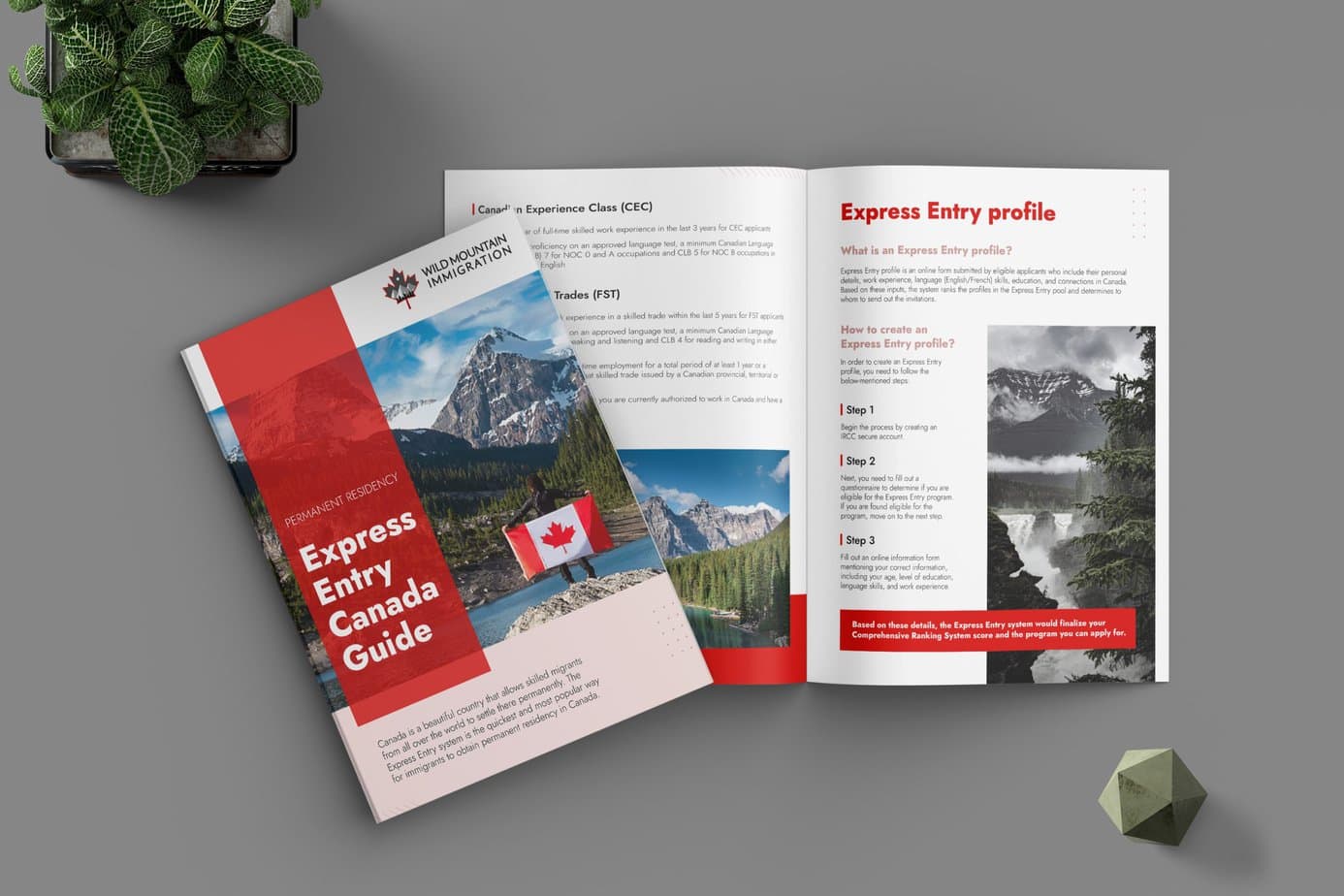If you’re currently working in Canada under a Post Graduate Work Permit (PGWP) and it’s about to expire, you might be wondering about your options for staying in the country. In this article, we will discuss some potential avenues available to you including the PGWP extension 2023.
The PGWP enables international graduates to work in any province in Canada for up to three years after graduation, depending on the duration of their studies. If your program was at least eight months, but less than two years, you may receive a PGWP that’s valid for the same length as your study program. For instance, if you completed a ten-month program, you may be granted a work permit for up to ten months. If you finished a study program that lasted less than eight months, you’re not eligible for a PGWP.
It’s highly advisable to apply for another temporary work permit or permanent residency before your PGWP expires to maintain your status as a worker while waiting for a decision from IRCC. However, there are several alternatives available for how to stay in Canada after your PGWP expires.
PGWP extension 2023
Canada has announced the PGWP extension 2023 which is an extension of post-graduation work permits for international graduates who are facing difficulties finding employment during the current period of economic recovery and growth.
The Minister of Immigration, Refugees, and Citizenship, Sean Fraser, revealed that foreign nationals who hold expired or expiring post-graduation work permits (PGWP) will be able to qualify for an additional or extended work permit of up to 18 months.
This PGWP extension 2023 program allows graduates to gain valuable work experience in Canada while allowing the country to retain high-skilled talent. The facilitative process will begin on April 6, 2023, and will permit eligible PGWP holders to extend their work permits.
Graduates whose PGWP expired in 2023 and those eligible for the 2022 PGWP will also have the opportunity to apply for an additional 18-month work permit. This will allow graduates to contribute to the Canadian economy while preparing for permanent residency.
The extension of post-graduation work permits recognizes the vital role international graduates play in addressing Canada’s labour shortage and ensures that the Canadian workforce has the necessary skills to drive innovation and economic growth.
The Canadian government will soon be sending messages to Post-Graduation Work Permit (PGWP) holders who are eligible for the facilitative process, inviting them to log into their online IRCC Secure Account from April 6, 2023, to opt in and update personal information.
The government has learned from issues experienced by PGWP holders during the 2022 process and has applied the lessons to the current initiative.
Anyone who was eligible for the 2022 facilitative process will be able to apply for an open work permit and restore their status, with instructions available on IRCC’s website in the coming weeks.
International graduates are an essential source of future permanent residents, with over 157,000 successfully transitioning to permanent residency in 2021, a record high, and nearly 95,000 in 2022, the second-highest total ever.
PGWPs are typically not extendable, and PGWP holders looking to extend their stay in Canada are expected to apply for another type of work permit as their PGWP expires.
The government previously introduced public policies in 2021 and 2022, allowing PGWP holders with expiring permits to apply for an additional work permit. As of the end of 2022, over 286,000 international graduates held a valid post-graduation work permit, with about 127,000 PGWPs expiring in 2023.
Are you ready to get started, or not sure which option is best for you?
Find out how you can move to Canada.
What to do after PGWP expires
Temporary options
Labour Market Impact Assessment (LMIA)
Most Canadian employers are required to go through the process of obtaining a Labour Market Impact Assessment (LMIA) in order to hire a temporary foreign worker.
A Labour Market Impact Assessment (LMIA) is a document issued by Employment and Social Development Canada (ESDC) that examines the impact of employing a foreign national in Canada for a specific position.
A positive LMIA indicates that there is no Canadian citizen or permanent resident available to do the work advertised, allowing an employer to hire a foreign national.
A negative LMIA indicates that this role should be filled by a Canadian citizen or permanent resident.
Once a positive LMIA is received by the employer, the temporary worker will use this document in their application to apply for a work permit.
This is an employer-specific (closed) work permit.

International Experience Canada (IEC)
The main objective of launching the IEC is to provide foreign nationals from participating countries who are between the ages of 18-35 (30 in some countries) with the opportunity to travel and work in Canada. There are 3 categories under the IEC program, these are:
- Working Holiday
- Young Professionals
- International Co-op
If you are eligible for at least one of the programs mentioned above, you will be placed into one or more pools of IEC candidates and be notified of this movement by receiving a message in your online account.
If you’re a citizen of a partner country, you might be eligible for one or more of the three categories.
If you are not a citizen of a partner country, you may still be able to apply for IEC through a recognized organization.
New study permit
Enrolling in a new post-secondary program could allow you to remain in Canada and work up to 20 hours per week.
It is important to note that PGWP’s are a one-time opportunity for international students, meaning you cannot get another PGWP after graduating for a second time.
Visitor Visa
Another temporary option to remain in Canada is to apply for a visitor visa. It is important to apply for this before your PGWP expires, otherwise, you may need to leave the country and re-enter. Most visitor visas are valid for six months without the opportunity to work.
PGWP to permanent residence
We have listed some of the potential PGWP to permanent residence options.
Express Entry
Express Entry refers to an online application system used by Immigration, Refugees and Citizenship Canada (IRCC) that handles and processes applications received from skilled workers across three programs; Canadian Experience Class, Federal Skilled Worker Program, and Federal Skilled Trades Program.
Express Entry is the fastest way to move to Canada permanently. Express Entry has become one of the most popular immigration systems for people all around the world due to its simplicity of use and rapid processing.
Given the high volume of applications for Canadian permanent residence, Express Entry is a highly competitive system for ranking eligible candidates against one another to guarantee that the best federal economic applicants are chosen from the Express Entry pool. The ranking method considers; education, work experience, language abilities, age, and other factors. So, you will have to meet certain eligibility criteria and take a language proficiency test in one of the official languages; English or French, before being considered for this immigration system.
The main benefit of Express Entry is that it provides eligible and deserving individuals with permanent residency in as little as 6 months.

Express Entry Ebook
This comprehensive guide will tell you everything you need to know.
Provincial Nominee Programs (PNPs)
The Canadian provincial nominee programs (PNPs) provide a route to permanent residency for individuals interested in moving to a certain Canadian province or territory. Once a province has nominated a candidate, only the federal government can then process and issue permanent residency.
Each Canadian province and territory has its own PNP program that is tailored to the particular economic and demographic needs of the region.
The Express Entry system is used by several nomination systems. A candidate receives 600 points toward their Express Entry CRS score if they are nominated.
This means that a PGWP holder may benefit from Express Entry’s accelerated processing time. Permanent residence status could be obtained as soon as 6 months under Express Entry.
For PGWP holders who haven’t completed work experience in an occupational skill type eligible for Express Entry, there are still PNP choices available. Most provinces have low-skilled PNP programs, which typically allow individuals in NOC skill types C and D to apply.

Atlantic Immigration Program (AIP)
The Atlantic Immigration Program, formerly known as the Atlantic Immigration Pilot program, helps recent graduates from an Atlantic (New Brunswick, Nova Scotia, Prince Edward Island, or Newfoundland and Labrador) post-secondary institute become permanent residents.
Candidates must have completed a qualifying, full-time program of at least two years in length and must have lived in one of these provinces for at least 16 months in the last 2 years before graduating to be considered. Qualifying graduates must also hold a job offer in one of the Atlantic provinces, the job offer can be in a NOC skill type A, B, C, or 0.
The advantage of this program is that international students who have completed their studies do not have to fulfil minimum work experience requirements. It also allows PGWP holders to apply before they've started working. It may be advantageous to PGWP holders who haven't received sufficient job experience to apply through other programs before their permit expires.
Rural and Northern Immigration Pilot (RNIP)
If you graduated from a publicly funded post-secondary institution as an international student in one of eleven select rural communities across Canada, you may be eligible to apply.
Candidates must have a master's degree or a post-secondary program of at least two years and have spent a minimum amount of time in the community under the pilot project.
Each rural community has its own set of requirements for applicants wanting to apply under their program.
Spousal Sponsorship
Canada offers sponsorship programs for permanent residents or Canadian citizens that wish to keep their loved ones in Canada with them. Certain family members may become permanent residents of Canada if they meet program requirements. The main eligibility requirement is to be legally married or in the case of common-law, to be in a ‘marriage-like’ relationship for a minimum of 12 consecutive months.
Conclusion
In this article we have provided some options of what to do after your 1-year PGWP expires, including the PGWP extension 2023 and some PGWP to permanent residence options. You may be eligible for the Express Entry system, a Provincial Nominee Program (PNP), the Atlantic Immigration Pilot program, or a new work permit, just to name a few. Each of these programs has its own specific eligibility criteria, so make sure you research which one is best for you.
If you are eligible to apply for permanent residency before your PGWP expires, you may also be eligible to apply for a bridging open work permit. This permit will allow you to work while waiting for the finalization of your permanent residency application.
We hope you liked our post on what to do after PGWP expires. If you need any asistance, get in touch!
Nicola Wightman
Nicola Wightman is a regulated Canadian Immigration Consultant (RCIC) under the College of Immigration and Citizenship Consultants (CICC). Her professional immigration consultant number is R706497.
Canadian immigration
Learn about moving to Canada, the Express Entry immigration process, working in Canada, studying in Canada, and more.
January 12, 2025
Trudeau Steps Down – What’s in Store for Canada’s Immigration Policies?
Prime Minister Justin Trudeau has announced his resignation as the leader of the Liberal Party and…
December 11, 2024
New Immigration Pathways Canada 2025: What You Need to Know
Canada is introducing several new immigration pathways in 2025, offering exciting opportunities for…
December 10, 2024
Major Express Entry Changes Proposed to Address LMIA Fraud
Canada’s immigration system may soon undergo significant Express Entry changes, as Immigration…
Start Your Canadian Immigration Journey
Our experts make the process clear, stress-free, and successful, so you can move forward with confidence and focus on what matters most.

Get Started Today
"*" indicates required fields



